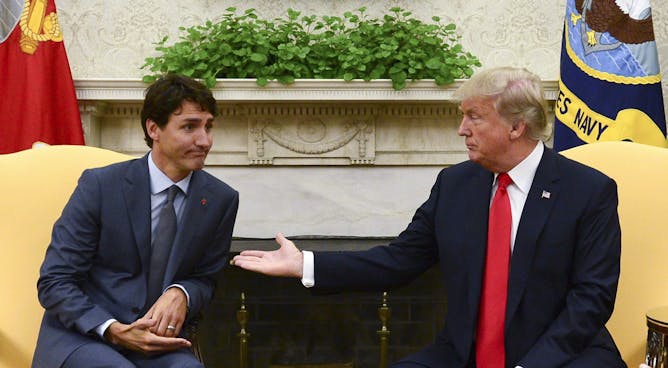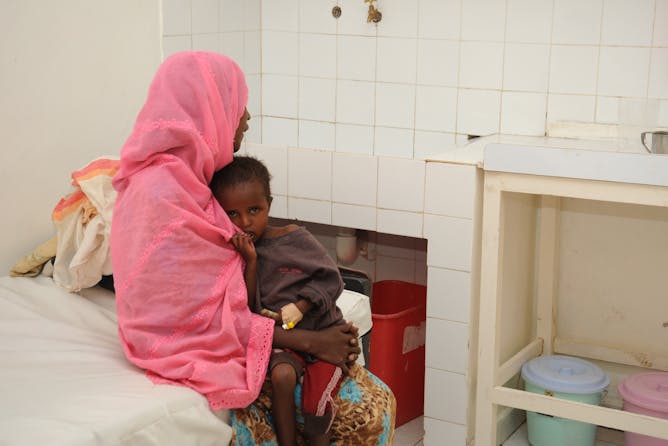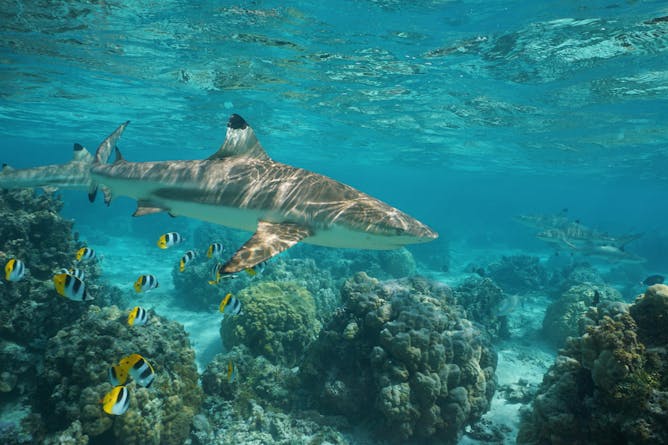|
|
|
Ford Nation Redux?
|
|
The province of Ontario heads to the polls today. And while our international readers may not find that so interesting, take note: The first openly gay leader of a Canadian province, Kathleen Wynne, is likely to lose, and polls suggest it will be at the hands of the brother of the infamous, crack-smoking Rob Ford, the late mayor of Toronto. Doug Ford has been branded Canada’s version of Donald Trump – oh, and Rob Ford’s widow is accusing him of bilking her and her children of millions of dollars in a recent lawsuit.
We’ve had some amazing analyses on The Conversation Canada about the wild election in Canada’s most populous province for the past few weeks, and we have another must-read today on how, or whether, misogyny and homophobia played a role in Wynne’s fortunes by Brock University’s Sharlee Cranston-Reimer. It joins an updated piece on Ford’s populism; a look at the leader of the left-wing New Democrats, Andrea Horwath, who’s given Ford a run for his money; a guide for non-partisans on how to vote; and a look at what might transpire in Ontario if there’s no majority government elected today.
Also today, Blayne Haggart of Brock University has a chilling piece tied to the G7 summit on how Donald Trump’s tariffs against Canada and the EU aren’t really just the product of his erratic leadership – they're a sign of the increasing willingness of the United States to impose its will on its neighbours and closest friends, and it’s unlikely to change if someone else is president.
In non-political news, Julia von Oettingen of McGill University and Rajesh Vedanthan of the Icahn School of Medicine at Mount Sinai have an encouraging piece on efforts by the World Health Organization to make the most crucial diagnostic tests available globally, particularly to those in the developing world.
And finally, predators like sharks, wolves and lions are both revered and feared, but what should we do when they threaten local animal populations? According to a new study by a team of researchers, including Robert Lennox, PhD candidate at Carleton University’s Fish Ecology and Conservation Physiology lab, predators are essential to ecosystems “and we would be wise to work hard to conserve and maintain them for the benefit of all.”
Happy Election Day, Ontario readers! And to all our readers, we'll be back in your inbox tomorrow.
|
Lee-Anne Goodman
Politics, Business + Economics
|

|
|
Top story
|

In this file photo, Ontario Premier Kathleen Wynne smiles as she arrives at the Toronto Blue Jays game against the New York Yankees during home opener AL baseball action in Toronto on Friday, April 4, 2014.
THE CANADIAN PRESS/Peter Power
Sharlee Cranston-Reimer, Brock University
How has sexuality, gender and race played a role in the career of Ontario Premier Kathleen Wynne?
|

Prime Minister Justin Trudeau meets with U.S. President Donald Trump in the Oval Office of the White House in Washington, D.C. in October 2017. Trump’s tariffs on Canadian aluminum and steel simply reflect a broader U.S. philosophy on international trade, and that doesn’t bode well for Canada.
THE CANADIAN PRESS/Sean Kilpatrick
Blayne Haggart, Brock University
The underlying problem with Donald Trump's tariffs on steel and aluminum isn't Trump. It's the increasing willingness by the U.S. to impose its will on its neighbours amid rising economic nationalism.
|

In low-settings many patients cannot access the tests they need for accurate diagnosis, treatment and a chance of survival. Here, patients wait in the Edna Adan University Hospital in Somalia, 2010.
(Shutterstock)
Julia von Oettingen, McGill University; Rajesh Vedanthan, Icahn School of Medicine at Mount Sinai
The World Health Organization has made bold progress by including many tests for con-communicable diseases on its new 'Essential Diagnostics List.'
|

Black tip sharks swim with tropical fish in a lagoon in French Polynesia.
(Shutterstock)
Robert Lennox, Carleton University; Austin Gallagher; Euan Ritchie, Deakin University; Steven J Cooke, Carleton University
When humans have conflicts with wildlife, the first reaction is often to cull them. But there's little evidence to show that it works, and removing predators can even backfire and make things worse.
|
Politics
|
-
Jacob Mundy, Colgate University
Libya’s proposed elections and any subsequent interim government will fail if the country’s challenges aren’t addressed.
|
|
Culture + Society
|
-
Louise Grimmer, University of Tasmania; Gary Mortimer, Queensland University of Technology
Kate Spade has been found dead in New York, age 55. Her handbags, first released in the early-1990s, introduced young professional women to affordable luxury.
|
|
Environment + Energy
|
-
Mariana Fuentes, Florida State University
Little chunks of plastic are now scattered throughout the oceans and pollute most beaches around the world, including the nesting sites of threatened and endangered sea turtles.
|
|
| |
| |
| |
| |
| |
| |
|
|
|
|
|
|
|